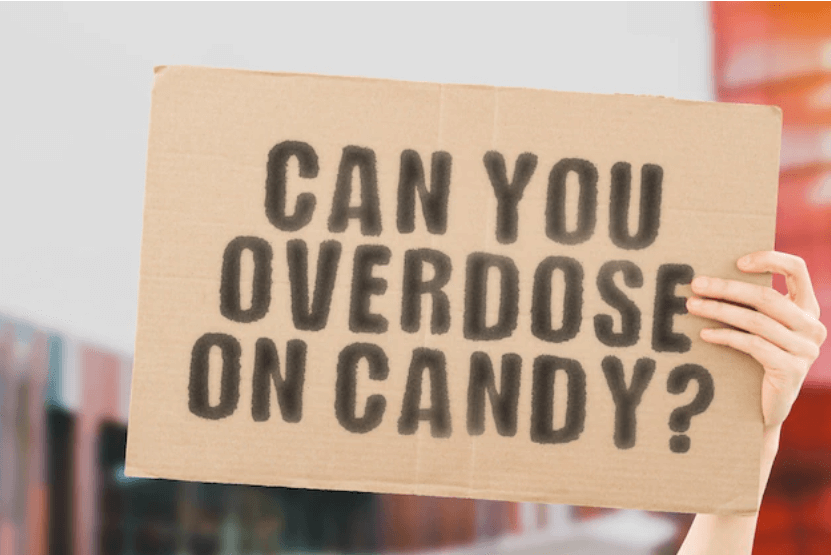A typical 8-ounce cup of brewed coffee contains 95-200 milligrams of caffeine (1). That means that one small cup of coffee can have as much as twice the amount of caffeine as a 12-ounce can of soda!
And if you’re drinking espresso or other forms of concentrated coffee, the levels will be even higher. So it’s important to be aware of just how potent those little cups o’ Joe can be.
Table of Contents:
- How Much Caffeine Is in a Cup of Coffee?
- The Effects of Caffeine on the Body
- The Benefits of Drinking Coffee
- The Risks Associated With Drinking Too Much Coffee
- Tips for Cutting Down on Your Caffeine Intake
- Conclusion
How Much Caffeine Is in a Cup of Coffee?
But did you know just How much caffeine is in a cup of coffee?
On average, there is 95 mg of caffeine in a cup of coffee. But this can vary depending on the type of coffee bean, the roasting process, and how the coffee is brewed.
So how much caffeine is too much?
It depends on the person. Some people are more sensitive to caffeine than others.
But a good rule of thumb is to limit yourself to 400mg of caffeine per day. That’s about 4 cups of coffee.
But generally speaking, there is about 95 mg of caffeine in a cup of coffee. Just be sure to limit yourself to 400mg of caffeine per day.
The Effects of Caffeine on the Body
For instance, did you know that caffeine can help to improve your cognitive function and make you feel more alert?
Of course, like with anything, there can be too much of a good thing. And when it comes to caffeine, consuming too much can lead to side effects like jitteriness, anxiety, and even heart palpitations.
So, how much is too much?
Well, that really depends on the person. Some people can drink several cups of coffee per day and not feel any adverse effects, while others may only need one cup to start feeling jittery.
Ultimately, it’s important to listen to your body and know your own limits.
So, what are some of the other effects of caffeine on the body?
Let’s take a look.
Caffeine can:
- Help to improve cognitive function
- Make you feel more alert
- Increase your heart rate
- Cause jitteriness
- Lead to anxiety
- Cause heart palpitations
- Dehydrate you
- Affect your sleep
The Benefits of Drinking Coffee
Caffeine is a stimulant, and it can actually help you to focus and be more productive. It can also give you a boost of energy when you need it.
In addition to the benefits of caffeine, coffee also contains antioxidants. Antioxidants are important because they help to protect your cells from damage.
They can also help to improve your overall health. Just be sure to limit your intake to avoid the side effects of too much caffeine.
The Risks Associated With Drinking Too Much Coffee
But did you know that drinking too much coffee can actually be bad for you?
Caffeine is a stimulant, which means it can speed up your heart rate and make you feel more awake. But it can also cause anxiety, insomnia, and even dehydration.
So how much is too much?
The Mayo Clinic recommends that healthy adults limit their caffeine intake to 400 milligrams per day. That’s about four cups of coffee.
But everyone is different. Some people are more sensitive to caffeine than others.
So if you’re feeling jittery or anxious after drinking coffee, it’s best to cut back. There are also some risks associated with drinking too much coffee.
For example, it can make you more likely to suffer from dehydration. It can also cause indigestion and heartburn.
It might be more than you realize.
Tips for Cutting Down on Your Caffeine Intake
If you’re trying to cut down on your caffeine intake, here are some tips that might help:
1. Start by Cutting Down Your Intake Gradually.
If you’re used to drinking 3 cups of coffee a day, try cutting down to 2 cups for a week, and then 1 cup the following week.
2. Try Decaf Coffee or Tea.
Decaf coffee still has some caffeine in it, but it’s much less than regular coffee.
3. Drink Caffeine-Free Beverages Such as Water or Fruit Juice in Between Caffeinated Drinks.
This will help to keep you hydrated and will also help to reduce your caffeine cravings.
4. Avoid Drinking Caffeine Late in the Day.
Caffeine can stay in your system for up to 8 hours, so if you drink it late at night, it might keep you awake.
5. If You’re Really Struggling to Cut Down on Your Caffeine Intake, There Are Some Medications That Can Help.
Talk to your doctor about your options. Hopefully these tips will help you to cut down on your caffeine intake.
Remember, it’s important to do it gradually so that you don’t experience withdrawal symptoms.
Conclusion
It’s important to be aware of just how much caffeine is in your coffee so you can enjoy it without overdoing it.
A typical 8-ounce cup of brewed coffee contains 95-200 milligrams of caffeine, so one small cup can have as much as twice the amount of caffeine as a 12-ounce can of soda!
If you’re drinking espresso or other forms of concentrated coffee, the levels will be even higher. So keep an eye on your intake and savor those cups o’ Joe responsibly!
If you’re looking to kick your nicotine habit for good, look no further than Nonic Vapes. Our selection of nicotine-free vapes is perfect for those who are trying to quit smoking and want to wean themselves off of nicotine gradually. Plus, our vapes contain vitamin B12, which has been shown to help reduce withdrawal symptoms and cravings. So why wait? Make the switch today and see the difference for yourself!

